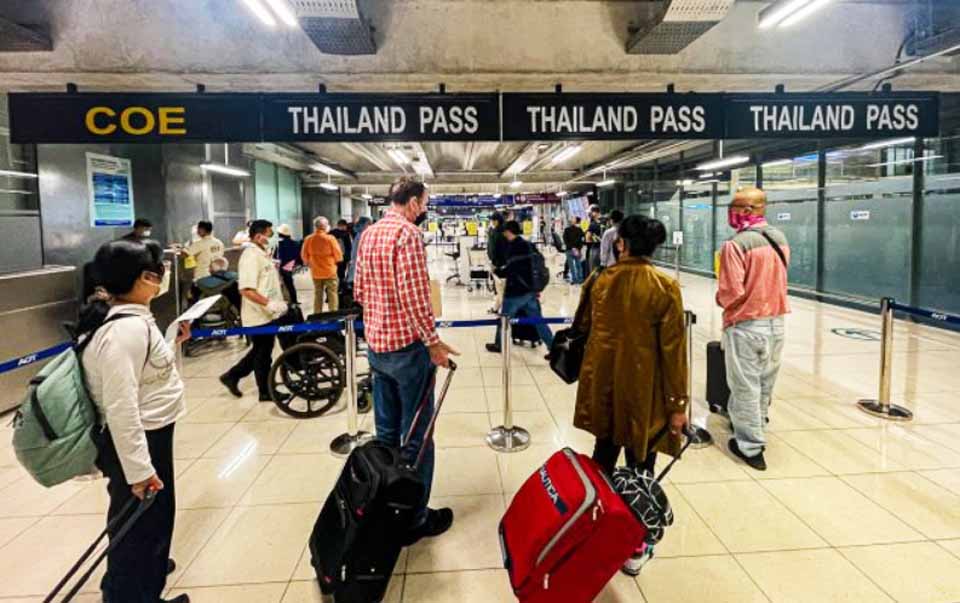
Prime Minister Prayut Chan-o-cha today rolled back Thailand’s reopening to foreign tourists, reimposing mandatory seven-day quarantine for all international arrivals who haven’t already been approved.
The unsurprising move had been expected to be taken Friday at a meeting of the Center for Covid-19 Situation Administration, which Prayut chairs. With testing on another 92 suspected cases of the coronavirus omicron variant pending, the PM called a quick, urgent session of the CCSA to rubber stamp his desire to clamp down on arrivals amid a surge in coronavirus omicron variant cases worldwide.
A news conference at the Public Health Ministry, however, added more confusion than clarity, with no one mentioning that quarantine would be imposed immediately.
Critics quickly jumped on the government for yet again failing to put out clear rules and engaging in incoherent messaging that illustrates the lack of coordination and total chaos the government has shown throughout the pandemic.
According to Prayut’s initial announcement, from Dec. 22 through Jan. 4, the Foreign Affairs Ministry will not issue any new Thailand Pass QR codes for the misnamed “Test & Go” scheme, which allowed tourists, expats and returning Thais to stay only one night in a government-certified hotel while awaiting results of an RT-PCR coronavirus test before getting unrestricted access to the entire country.
The 90,000 people with approved Thailand Pass QR codes can still use them until Jan. 10. However, no new applications will be accepted during that time. The CCSA will re-evaluate on Jan. 4.
Anyone with an approved QR code can enter as per Test & Go, but will be subjected to a second, free, RT-PCR test on the seventh day after arrival. It’s unclear how the government will enforce this, as Test & Go travelers can go anywhere they like after the negative first test result.
Also unclear was when quarantine would be reimposed on those without approved QR codes. Again, the messaging implies one hand (Prayut) doesn’t know what the other (Public Health Ministry) is doing.
Without Test & Go, all arrivals would have to be confined to an alternative quarantine hotel for 14 days or enter via the Phuket “sandbox” program, as was the case before Thailand’s Nov. 1 “reopening”, which now is headed the other way.
All of the other 16 sandboxes, including Pattaya, Chiang Mai, Samui, Phangnga and Bangkok, have been suspended until at least Jan. 4.
Phuket sandbox travelers cannot leave the island for a week, but are not confined to their hotels. The other sandboxes were suspended because keeping people in areas like Pattaya or Bangkok, for example, is basically impossible.
The suspension of Test & Go and reimposition of lengthy quarantines deals a body blow to the tourism industry, which was only starting to recover.
As the news was being announced, a group of 30 tourism-business operators descended upon the Public Health Ministry to decry the Test & Go suspension, pointing out it will hurt their businesses, especially during the lead-up to the New Year’s holiday.
A group representative said that people in the tourism sector are afraid that the suspension may lead to a partial lockdown of the country again. She berated the ministry and CCSA for instilling fear in people about the omicron variant and to declare Covid-19 an endemic disease that is treatable.
The original version and updates to this story appear in the Bangkok Herald, a Pattaya Mail partner.
 |
 |
 |





